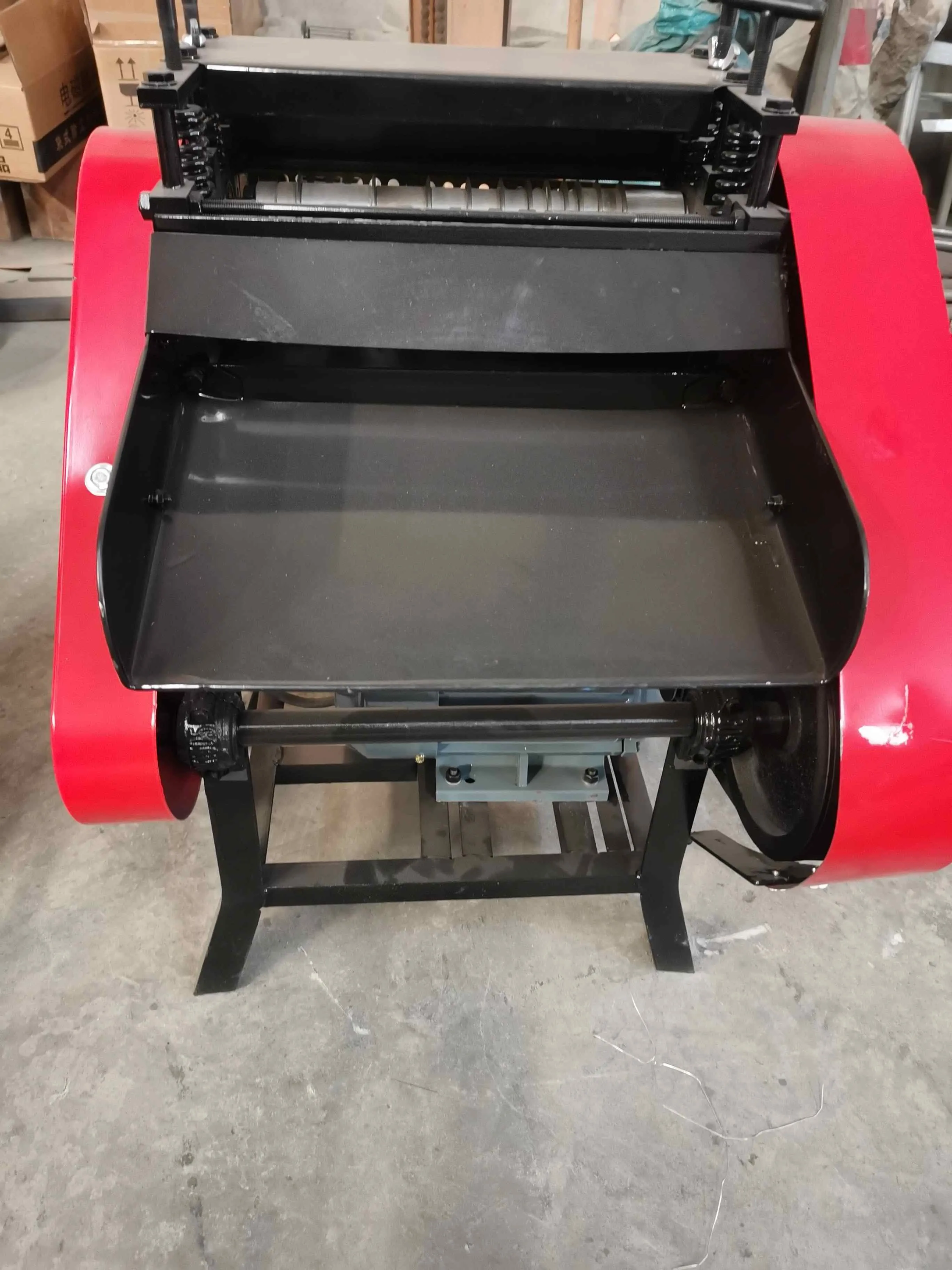

Dec . 12, 2024 01:00 Back to list
Eddy Current Aluminum Separation An Innovative Approach to Recycling
In the quest for sustainable waste management, the separation of materials has become a crucial focus area. One of the most technologically advanced methods for separating non-ferrous metals from mixed waste streams is the eddy current separation technique. This method has found significant application in the recycling industry, particularly for aluminum, which is one of the most valuable and widely recycled metals.
Eddy current separation is based on the principle of electromagnetic induction and operates on the fundamental concept that conductors, such as aluminum, respond to changing magnetic fields. When non-ferrous metals pass through a magnetic field, they induce eddy currents within the metal. These eddy currents generate their own magnetic fields, which in turn exert a force on the metal, causing it to be expelled from the waste stream. This ability to selectively separate aluminum from other materials makes eddy current separation a highly efficient and effective solution for recycling.
Eddy Current Aluminum Separation An Innovative Approach to Recycling
The process begins with the input of mixed waste materials into the separation system. The waste is usually pre-sorted to remove large non-metallic items, but eddy current separators can still handle a range of materials, including aluminum cans, foils, and other types of non-ferrous metals. As the waste moves through the eddy current separator, it passes over a conveyor belt that runs through a magnetic rotor. The rotor generates a rapidly alternating magnetic field that induces eddy currents in the aluminum particles.

Once the eddy currents are induced, each non-ferrous metallic piece experiences a force proportional to the strength of the induced currents. The interaction between the magnetic field and the eddy currents causes aluminum items to be thrown off the conveyor belt and into a designated collection area, allowing for optimal separation from other materials that do not produce significant eddy currents, such as plastics or ferrous metals like steel and iron.
Moreover, the efficiency of eddy current separation contributes to reducing the overall environmental impact of recycling operations. By maximizing the recovery of aluminum, industries can minimize the need for primary aluminum extraction, which is an energy-intensive process. This results in lower greenhouse gas emissions and a reduced carbon footprint. Additionally, recycling aluminum requires about 95% less energy compared to producing new aluminum from raw materials, making this process not only economically viable but also environmentally sustainable.
Despite its numerous advantages, the implementation of eddy current separators does come with certain considerations. Initial investment costs can be higher when compared to conventional separation methods. However, the long-term savings and increased revenue from higher quality aluminum recovery often outweigh these initial costs. Additionally, regular maintenance is required to ensure the efficiency and longevity of the equipment.
In conclusion, eddy current aluminum separation is a revolutionary technology that plays a vital role in modern recycling efforts. It not only guarantees high purity and effective separation of aluminum from mixed waste streams but also supports sustainability by conserving energy and resources. As the demand for recycled materials continues to grow, embracing technologies like eddy current separation will be essential in achieving a circular economy where resources are efficiently reused and waste is minimized. The future of recycling is undoubtedly bright with such innovative solutions at the forefront.
Latest news
Troubleshooting Common Eddy Separator Problems
NewsJul.04,2025
The Role of Metal Recycling Plants in Circular Economy
NewsJul.04,2025
The Impact of Recycling Line Pickers on Waste Management Costs
NewsJul.04,2025
Safety Features Every Metal Shredder Should Have
NewsJul.04,2025
How Industrial Shredders Improve Waste Management Systems
NewsJul.04,2025
How Cable Granulators Contribute to Sustainable Recycling
NewsJul.04,2025